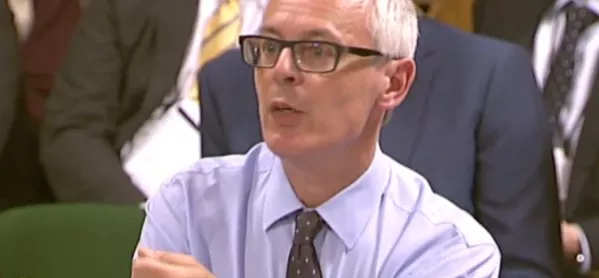The most senior civil servant at the Department for Education has said the government is preparing for the eventuality that “kids can’t get home” from school in the event of a no-deal Brexit causing traffic disruption in Kent.
Jonathan Slater, the DfE’s permanent secretary, said the European Union’s decision to delay the date of Brexit until at least 12 April gave his staff more time to prepare for “who knows what”.
Mr Slater was speaking in Coventry today at the LearnEd conference.
He told the teachers and heads at the conference: “It gives us two more weeks to work with you [schools] to prepare for who knows what.
He went on: “It’s amazing, isn’t it, that we [the Department for Education] are working with Kent County Council to prepare for what happens if the kids can’t get home [from school] if the worst thing possible happens.”
Quick link: Brexit: ‘Give nursery workers priority for visas’
Quick link: Brexit could ‘double the pressure on teacher recruitment’
Quick link: Government publishes Brexit action plan for FE
Kent Council has issued advice to schools in the event of disruption caused by huge queues of vehicles unable to access Channel ports.
Its area education officer Ian Watts said: “As a local authority, we have a duty to the families of Kent to ensure schools and other education settings do all they can to ensure continuity of provision, even in times of emergency or when circumstances change to an extent that the ability to maintain ‘normal’ provision is greatly reduced.”
He said it would be “remiss” to assume that a no-deal Brexit would not affect schools, which were given annual emergency planning guidance.
“As we get nearer to the date that the government has determined we leave the European Union, it is prudent that schools, pupil referral units and early-years settings begin to plan for the possibility of disruption that might follow our departure,” Mr Watts said.
“It is always the case in emergency planning that the worst-case scenario should be planned for. Kent is not saying this will happen, but is simply trying to provide schools with greater awareness of issues that may arise so that they can be as prepared as possible.”
The council said it had raised possible disruption to exams with the DfE and awaited guidance but “initial feedback from those schools that have raised this issue with examination bodies is that is that they are not minded to change procedures at this time”.
The guidance told schools that if transport is disrupted, “you should keep the pupils/students inside the school until new travel options can be put in place...you might have to consider feeding and ensuring sufficient staff remain on site to care for stranded children”.
Food and fuel might not be delivered to schools on time either because of traffic congestion or insufficient quantities being imported, it warned.




